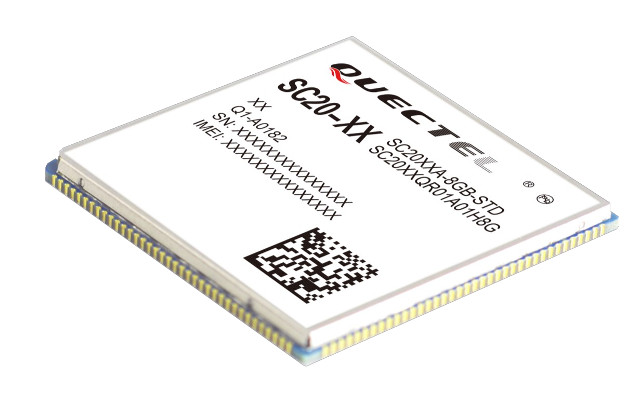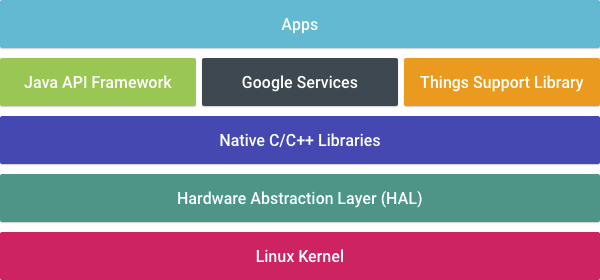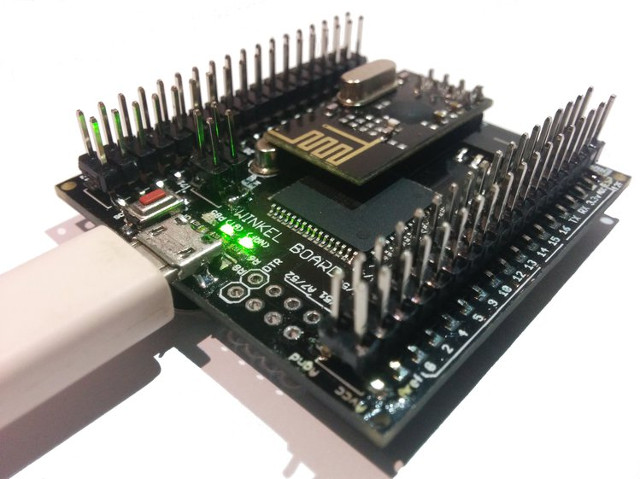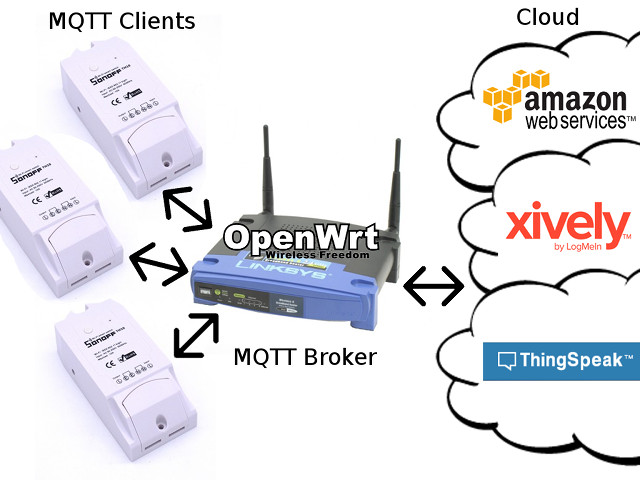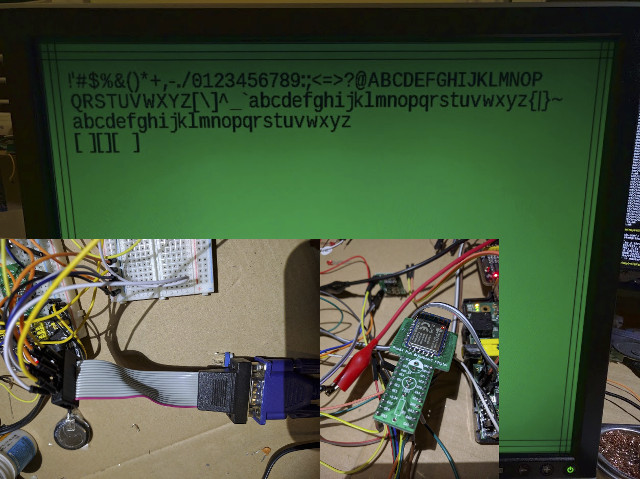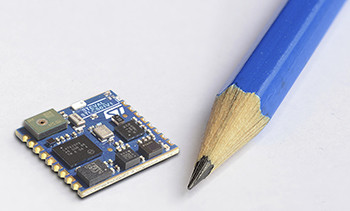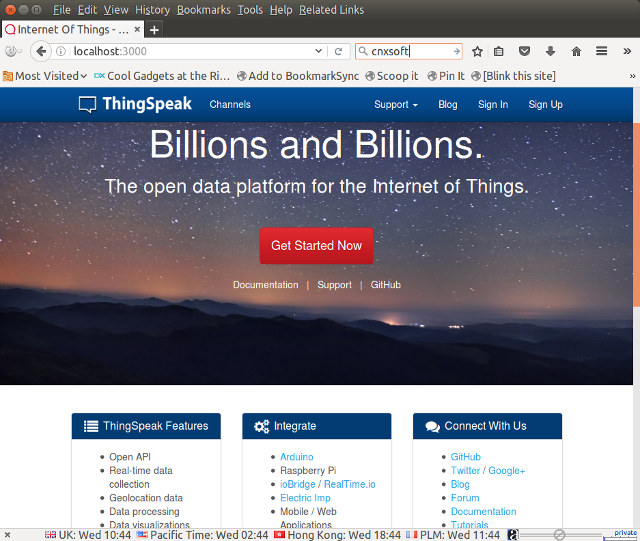Google may just have released Android Things operating systems for IoT applications, but its big brother – Android – has already gotten into some other IoT systems such as Quectel SC20 module powered by a Qualcomm processor and supporting LTE, WiFi, Bluetooth LE, and GNSS functions. Quectel SC20 comes in different flavors to cater for various markets, but all module share most of the same specifications: SoC – Unnamed Qualcomm processor System Memory – TBD Storage – 8GB flash Cellular Connectivity – FDD LTE, TDD LTE, TD-SCDMA, EVDO/DCMA, WCDMA, and GSM; antenna: MIMO 2×2, supports Rx-diversity Other Wireless Connectivity WiFi – 2.4GHz 802.11b/g/n (SC20-CE/-W); Dual band 802.11a/b/g/n/ac (SC20-E/-A/-AU/-J) Bluetooth 2.1+EDR/3.0/4.1 LE GNSS – GPS, GLONASS, and BeiDou Interfaces LCD – 4x lanes MIPI-DSI, 1.5Gbps each, HD (720p) @ 60fps Camera – MIPI-CSI, up to 1.5Gbps per lane, supports two cameras 2-lane MIPI_CSI for rear camera, up to 8MP 1-lane MIPI_CSI […]
Android Things OS for the Internet of Things Supports Raspberry Pi 3, Intel Edison, and NXP Pico Boards
Google introduced Project Brillo a little over a year ago, an operating system based on Android, but with a smaller footprint optimized for Internet of Things applications. Brillo has now just become Android Things OS, with Google releasing a developer preview of Android Things working on Raspberry Pi 3, Intel Edison, and NXP Pico boards. The company has also updated the Weave platform to simplify connection of all types of devices to the cloud, and interaction with services like the Google Assistant. The Weave Device SDK currently supports schemas for light bulbs, smart plugs, switches, and thermostats, with more type of device supported in the future, as well as a mobile app API for both Android and iOS. Using an Android based OS instead of a pure Linux OS should make it easier for Android app developers to create smart devices thanks to the use of familiar Android APIs and […]
$24 Winkel Arduino Compatible Board Includes WiFi, Bluetooth, 2.4 GHz RF, and an RTC (Crowdfunding)
There are plenty of Arduino compatible boards with WiFi based on ESP8266 WiSoC going for around $5 to $10, and with ESP32 processor, we are starting to have $15 to $20 boards with both WiFi and Bluetooth, but while ESP-IDF SDK has been progressing nicely, some parts of Bluetooth functionality are still not implemented. Winkel board offers an interesting alternative by offering WiFi, Bluetooth, 2.4GHz ISM, and an RTC for $24. Winkel board specifications: MCU – Microchip/Atmel ATmega128 MCU @ 16 MHz with 128KB flash memory, 4KB SRAM, 4KB EEPROM Connectivity WiFi 802.11 b/g/n via ESP12E module based on ESP8266 Bluetooth 2.0 + EDR via HC-05 module RF Radio – NRF24l01 2.4 GHz ISM radio. (Note: It might be possible to use it for Bluetooth LE connection, see here and there). I/Os (through both Atmel MCU and ESP8266) 38x Digital I/Os 7x PWM Digital I/Os 8x Analog Inputs USB – […]
How to Use Sonoff POW ESP8266 WiFi Power Switch with MQTT and ThingSpeak
ITEAD Studio’s Sonoff is a family of cheap home automation products based on ESP8266 WiSoC, and I’ve already tested Sonoff TH16 wireless switch with a humidity and temperature sensor using the stock firmware and eWelink app for Android or iOS. It works, but up to recently it required a registration to a cloud service (the company will now allow use from the local network), and the source code is closed. So for the second device under review, namely Sonoff POW wireless switch with a power consumption monitor, I decided to install ESPurna firmware working on ESP8266 Sonoff devices and NodeMCU, as it’s open source, supports Sonoff POW natively, includes a web interface to control the device from the LAN, and includes an MQTT client. MQTT (Message Queuing Telemetry Transport) is a lightweight publish/subscribe messaging protocol used to control IoT sensors and devices, and it’s a popular method to gather data […]
VGA Output Hack on $2 PADI IoT Stamp & Other Realtek RTL8710AF Modules
It’s pretty amazing what you can do with those cheap WiFi modules coming from Espressif and Realtek. You may remember CNLohr getting ESP8266 to broadcast video to your TV though NTSC, and that was impressive. But developer kissste, who has been very active since the announcement of a $2 Realtek RTL8710 module, has now developed a VGA driver demo for Realtek Ameba WiFi SoCs, and successfully tested it on Pine64 PADI IoT Stamp. Just like on ESP8266, there’s no hardware display block on RTL8710AF, RTL8711AF, and RTL8195AF SoCs, so instead he had to connect the signals to GPIOs with the video signal connected to GA1 via a resistor, H-Sync to GC2, and V-Sync to GA5. Video and H-Sync data is actually transfered over an SPI connection using DMA transfer for better performance. Normally the video signal for VGA is divided into red, green, and blue signal, so I understand he mixed […]
Sonoff SC WiFi Environmental Monitor Sells for $20
ITEAD Studio has done some good job with their Sonoff home automation devices based on Espressif ESP8266 WiSoC, as they are affordable, working as advertised with default firmware, and hackable with our own. The company has now added a new model, which may or may not be as useful, with Sonoff SC environmental monitor device that detects current temperature, humidity, light intensity, air quality, and sound levels, and sends the data to eWeLink app installed on your Android or iOS phone. You may be thinking it can be used as a home assistant since it really looks like a speaker and include some sort of microphone, but the top of the device is probably used to let air and dust go through. Sonoff SC specifications: WiSoc – Espressif ESP8266 Tensilica L106 processor @ 80/160 Mhz with WiFi MCU – Atmel ATMega328 MCU Connectivity – 802.11 b/g/n WiFi Sensors Sharp GP2Y1010AU0F dust sensor […]
STMicro SensorTile is a Tiny STM32 Module with Bluetooth 4.1 LE and Four Sensor Chips
STMicroelectronics SensorTile is a 13.5 x 13.5mm sensor board based on STM32L4 ARM Cortex-M4 microcontroller, a MEMS accelerometer, gyroscope, magnetometer, pressure sensor, a MEMS microphone, as well as a 2.4Ghz radio chip for Bluetooth 4.1 Low Energy connectivity for wearables, smart home, and IoT projects. SensorTile hardware specifications: MCU – STMicro STM32L476 ARM Cortex-M4 microcontroller@ up to 80 MHz with 128 KB RAM, 1MB flash Connectivity – Bluetooth 4.1 Smart/LE via BlueNRG-MS network processor with integrated 2.4GHz radio compliant with Sensors LSM6DSM 3D accelerometer + 3D gyroscope LSM303AGR 3D Magnetometer + 3D accelerometer LPS22HB pressure sensor/barometer MP34DT04 digital MEMS microphone I/Os – 2x 9 half holes with access to UART, SPI, SAI (Serial Audio Interface), I2C, DFSDM, USB, OTG, ADC, and GPIOs signals Debugging – SWD interface (multiplexed with GPIOs) Power Supply Range – 2V to 5.5 V Dimensions – 13.5 x 13.5 mm Software development can be done through […]
How to Install ThingSpeak in Ubuntu 16.04
Last week-end I installed ESPurna open source firmware with MQTT server on Sonoff POW WiFi switch, and the next step is find a way to draw power consumption charts in some web based interface. We could do this in the IoT cloud with services like Xively or ThingSpeak, but since one of the goals of replacing the default firmware was not to rely on a proprietary cloud based solution, I decided to find a way to draw those chart in a local server, and it so happens that ThingSpeak is also open source with the code available on Github. Hardware platforms like NanoPi NEO / NEO Air, or Orange Pi Zero boards appear to be particularly well suited for the task of running an MQTT broker and Thingspeak, but at first I wanted to install ThingSpeak in my own Ubuntu 16.04 computer to have a try. As you can see […]


